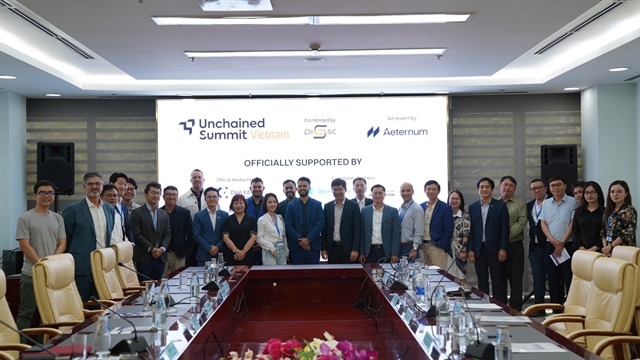 Politics & Law
Politics & Law

.jpg)
|
| Prime Minister Phạm Minh Chính speaks at the Ministry of Culture, Sports and Tourism’s 2024 performance review and 2025 strategic planning conference on Wednesday. VNA/VNS Photos |
HÀ NỘI — Prime Minister Phạm Minh Chính has urged the Ministry of Culture, Sports and Tourism to enhance policies and attract resources to drive growth in these sectors.
He highlighted the need for the ministry to embrace innovative thinking and implement transformative measures to create opportunities for cultural, sports and tourism development in the modern era.
The directive was delivered during the ministry’s 2024 performance review and 2025 strategic planning conference on Wednesday.
The hybrid conference, themed 'Building an Advanced Culture Imbued with National Identity – A Driving Force for National Development in the New Era' was held at the Government Office, with the attendance of representatives from the ministry and provincial and district-level people’s committees across the country.
Reporting at the conference, Minister of Culture, Sports and Tourism Nguyễn Văn Hùng highlighted significant progress in 2024, particularly the shift from cultural policy to practical application in the cultural industry.
The cultural industry has emerged as a key sustainable contributor to national growth. Policies to encourage creativity have been further refined and enforcement of copyright laws has seen improvements.
Hùng noted that efforts to create a cultural environment tied to the development of culturally-rich individuals are on the right track, focusing on grassroots communities and empowering citizens as key actors in preserving and promoting cultural values. Pilot programmes have been effectively scaled up nationwide.
As of now, 50 out of 63 cities and provinces have developed models to preserve cultural identity, traditions and customs.

|
| International tourists visit Hà Nội's Old Quarter. |
In 2024, tourism rebounded significantly post-pandemic and was recognised by Prime Minister Phạm Minh Chính as a standout success in the country’s socio-economic situation.
In addition to five established tourism product groups, new experiences were launched, such as the Huế-Đà Nẵng heritage train and the South Thăng Long heritage route.
International tourist arrivals to Việt Nam were estimated at 17.5 million, a 38.9 per cent increase compared to 2023, while domestic visitors reached 110 million, a 1.6 per cent rise year-on-year.
Total tourism revenue was approximately VNĐ840 trillion (US$32.9 billion), up 23.8 per cent compared to 2023.
Việt Nam was honoured as the World's Leading Heritage Destination award from the World Travel Awards (WTA) for the sixth year in a row and as Asia’s Leading Destination for the fourth consecutive year.
Vietnamese sports achieved notable milestones in 2024, securing a total of 1,214 international medals, including 482 gold, 360 silver and 372 bronze medals.
The Vietnamese women’s volleyball team won its first-ever world championship medal and claimed its second Asian championship title.
Hùng outlined key priorities for the ministry in the coming period, including the implementation of Việt Nam’s Cultural Industries Development Strategy through 2030, with a vision to 2045, pending Prime Minister’s approval.
The strategy will focus on enhancing the competitiveness and integration of the cultural market, while fostering the growth of potential cultural industry products.
The ministry also plans to streamline its organisational structure, stabilise operations. It prepares a feasibility report on the National Target Programme for Cultural Development for the 2025–2035 period to submit for approval.
Efforts will also be directed towards implementing the Việt Nam Tourism Development Plan for the 2021–2030 period, with a vision to 2045.
By 2025, the tourism sector aims to welcome up to 23 million international visitors and 130 million domestic travellers, generating estimated revenues of VNĐ1.05 quadrillion ($46 billion).

|
| International tourists request calligraphy at Ngọc Sơn Temple during the Lunar New Year 2024. |
In his concluding remarks, PM Chính outlined seven key tasks and solutions for the sector.
He emphasised that the ministry needs to create breakthroughs in governance by abandoning restrictive mindsets, eliminate 'ask-give' mechanisms, enhance decentralisation and simplify administrative procedures linked to digital transformation.
He urged the ministry to build strategic and comprehensive infrastructure for culture, sports and tourism, including hard, soft and digital infrastructure, using data and artificial intelligence.
PM Chính highlighted the importance of training skilled professionals and implement tailored policies to support the arts and sports industries while retaining talent. He said that the ministry should attract resources through appropriate policies, particularly public-private partnerships, leveraging state funding to catalyse contributions from society, businesses and individuals.
He also emphasised strengthening sectoral management using intelligent systems based on data, developing exemplary models and initiatives to foster widespread progress and innovation and ensuring mechanisms and opportunities for all Vietnamese citizens to benefit from advancements in culture, sports and tourism.
The PM stressed that the ministry must accelerate progress with innovative thinking, a strategic vision and decisive actions so that the sector’s achievements of 2025 must surpass those of 2024. — VNS




